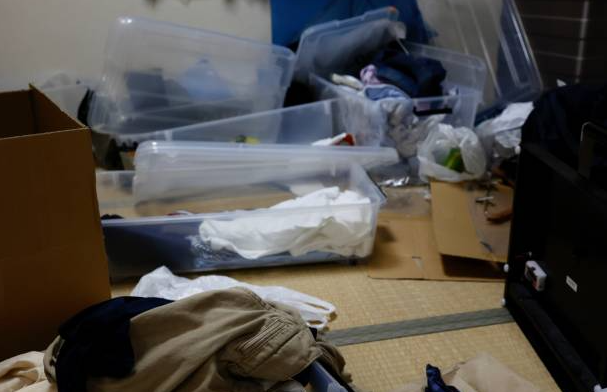In our last article, we explored the subtle signs of hoarding, not just in our homes, but in our habits. I asked you to take inventory: the junk drawer you haven’t opened in a year, the old clothes, worn-out underwear, broken jewellery, makeup from five birthdays ago, greeting cards from people you no longer speak to… These items are more than clutter; they are emotional residue. So, what’s really taking up unnecessary space?
—
When “Mine” Becomes “Me”
Ownership changes perception. The moment we call something ours; it transforms into a personal weight. Whether it’s a pair of jeans or a house, once we choose it, it feels like a part of us. Try selling it and suddenly, it seems far more worth than anyone else does.
This is the Endowment Effect, the cognitive tendency to overvalue what we own, simply because it belongs to us. It’s why we have filled garages, wardrobes, and “Ghana Must Go” bags with things we neither use nor need, but cannot let go of.
—
Greed: The Silent Culprit
Not all greed is loud or obvious. Sometimes we hoard out of greed, the quiet and subtle kind. We can’t say no to either a sale or free stuff. We collect things we’ll never use and keep clothes with tags still on them. We tell ourselves, “I might need this,” even when we clearly don’t. Greed is that excessive desire for more than enough. And in that mindset, we confuse want for need.
—
Fear: “The What-If Whisperer”
Fear plays a powerful role in hoarding. The voice that says:
What if I need it later?
What if I never find one like it again?
What if I regret letting go?
This fear keeps us trapped in the past (memories) or the future (uncertainty), and never in the present. So, we hold on.. And keep holding on.
—
The Emotional Attachments
But we don’t just hoard objects; we hoard memories. Childhood toys. Love letters. Photos. Forgotten phone contacts. We hold onto items that remind us of someone we loved, lost, or a feeling. Sometimes, we even hold onto people, staying in contact with an ex, not because we’re still in love, but because letting go feels too final. Our hearts become storage rooms for emotional clutter.
—
When Grief Makes It Harder
Letting go of someone’s belongings can feel like losing them all over again. The unopened bottle of perfume or that old neatly folded shirt, etc. We fear that discarding their things means discarding their memory. But truthfully, they live in our hearts, not in their estates.
—
Life Gets in the Way
In the rush of modern/busy life, decluttering often takes a back seat, leading to hoarding. We don’t get time to sort, declutter, or organize. We tell ourselves, “I’ll do it later,” but later rarely comes. And so the clutter builds, silently growing into an overwhelming sight.
—
When Possessions Define Us
Sometimes, we tie ourselves to our self-worth. We think ‘I am what I own’. In a world that glorifies materialism, this trap is easy to fall into. Society rewards accumulation, not emptiness. The more we have, the more we think we are.
But here’s the truth: You are not what you keep.
Your identity isn’t tied to the things in your closet or possession.
—
Food For Thought.
Take a moment. When you looked through your clutter last week, what did you feel?
Fear? Guilt? A pang of memory that made your chest tighten? The weight of the past?
Take a breath. Be honest with yourself.
Meditate. Reflect. This journey isn’t about tossing things into a bin/clearing physical space. It’s about releasing what no longer serves you.
—
Next week
In the final part of this series, we’ll explore how to let go, physically, mentally, and emotionally. Using practical steps to help break the cycle of hoarding and reclaim our space, peace, and power.
Until then, remember: Declutter not just your home, but also your heart. Let go of what you don’t need…
And watch what peace makes room to stay.




